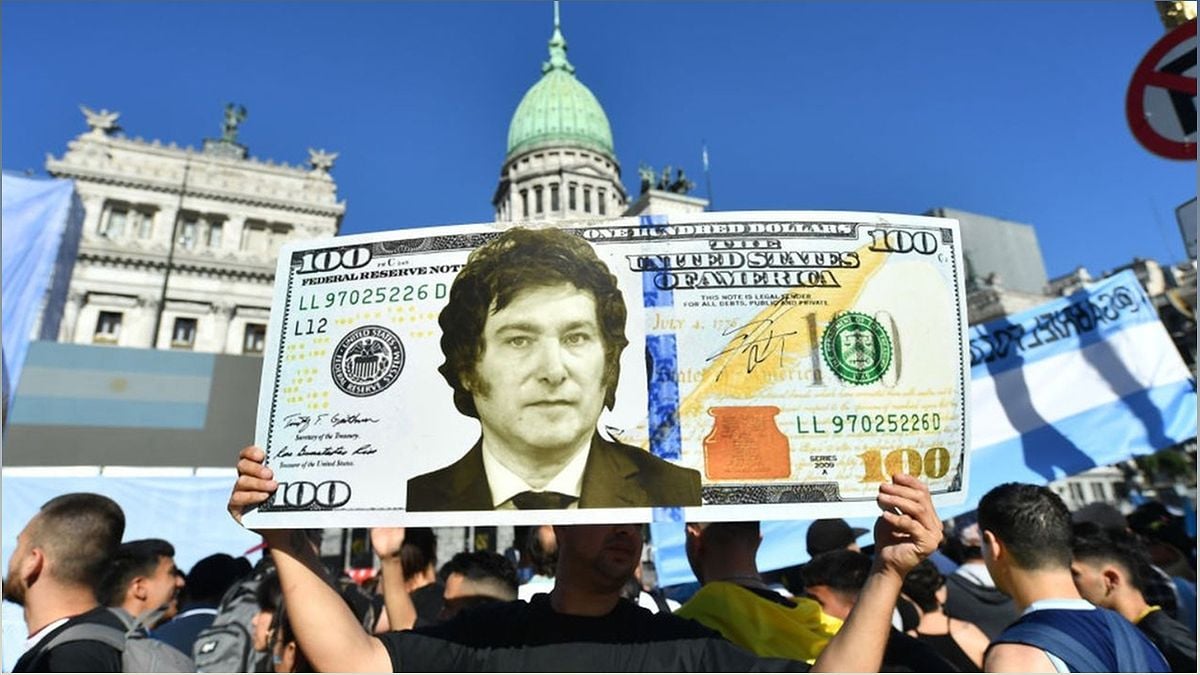Argentina’s New President Implements Drastic Economic Measures
Argentina’s newly elected president, Javier Milei, has announced drastic measures to address the nation’s economic challenges. In an effort to combat inflation and reduce the country’s trade deficit, the administration has devalued the currency by over 50% against the US dollar. Additionally, there will be cuts to energy and transportation subsidies. Milei, known for his libertarian views, has pledged to implement ‘economic shock therapy’ and significantly reduce the size of the government. These measures come as Argentina faces soaring poverty levels and a deep recession. The government aims to avoid hyperinflation and stabilize the economy through these tough decisions.
Devaluation of Currency
One of the key measures implemented by President Javier Milei is the devaluation of Argentina’s currency by over 50% against the US dollar. This drastic step aims to address the nation’s economic challenges, including high inflation and a trade deficit.

The devaluation, cutting the exchange rate to 800 pesos to the US dollar, is expected to have significant implications for the economy. While it may help boost exports and make Argentine goods more competitive internationally, it also poses challenges for imports and the purchasing power of the population.

By devaluing the currency, the government hopes to stabilize the economy and attract foreign investment. However, it is a risky move that requires careful management to avoid further economic turmoil.
Reducing Government Size
Another significant measure taken by President Milei is the reduction of the government’s size. This involves cutting the number of ministries from 18 to 9 and canceling tenders for public works projects.

By streamlining the government, the administration aims to improve efficiency, reduce bureaucracy, and save costs. However, these measures also mean job cuts in the public sector, which can have social and economic implications.

The government believes that reducing the size of the government is necessary to address the economic crisis and avoid hyperinflation. It is a challenging decision that requires balancing the need for fiscal discipline with the impact on the livelihoods of the affected individuals.
Addressing Inflation and Trade Deficit
Argentina is currently facing a significant inflation rate of 143% annually, which has led to a decline in the value of the currency. President Milei’s administration recognizes the urgency of addressing this issue and has implemented measures such as devaluing the currency to combat inflation.
In addition to inflation, Argentina also has a trade deficit of $43 billion. This means that the country imports more goods and services than it exports, putting pressure on the economy. The government aims to address this trade deficit through various strategies, including promoting exports and attracting foreign investment.
Reducing inflation and the trade deficit are crucial for stabilizing the economy and restoring confidence in the Argentine market. These measures require a comprehensive approach and long-term planning to achieve sustainable economic growth.
Tough Decisions for Economic Stability
President Milei acknowledges the gravity of the economic situation in Argentina and the need for immediate action. In his inaugural address, he emphasized the necessity of making tough decisions to prevent a catastrophic economic crisis.
These tough decisions include reducing government spending, cutting subsidies for energy and transportation, and implementing economic shock therapy. While these measures may be unpopular and challenging, they are deemed necessary to avoid hyperinflation and restore economic stability.
The government is aware of the potential social and economic impact of these decisions and aims to mitigate their effects through careful planning and support for those affected. The ultimate goal is to steer Argentina away from the brink of crisis and towards a path of sustainable growth.
